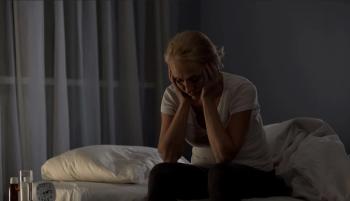
Nocturia Compounds Negative Effects of Insomnia
Nocturia was responsible for 54.2% of nocturnal awakenings in community-dwelling older adults.
More than half of nocturnal awakenings in a group of older adults with insomnia were associated with nighttime voiding, or nocturia, according to results of the first study to assess the effect of nocturia on objective measures of sleep. Frequent toileting at night in this population was significantly associated with nighttime wakefulness and decreased subjective restedness after sleep.
“Nocturia is overwhelmingly the major reason for disrupted sleep that older individuals self-report,” said Jamie M. Zeitzer, PhD, of the department of psychiatry, Stanford University, Palo Alto, Calif, and lead author of the study published online March 15 in the Journal of Clinical Sleep Medicine. “If the individual is bothered by the nocturia, the self-perceived sleep disruption was even worse.”
It is important, Zeitzer told Consultantlive, that physicians recognize the significant and direct relationship between nocturia and sleep disruption, and particularly in older patients.
For the study, titled
Participants reported an average of 1.4 trips to the bathroom per night out of a mean of 2.4 awakenings, meaning that 54.2% of nocturnal awakenings were due to nocturia. The researchers identified age (P<.001), respiratory disturbance index (P<.001), body mass index (P<.01), and use of diuretics (P<.05) as variables significantly related to the number of trips to the bathroom at night.
Subjective measures indicated that an increased number of trips to the bathroom was associated with significantly worse restedness (P<.01) and sleep efficiency (P<.001). When the researchers looked at data from the patients with the most and the least number of nocturnal voids, they found that the average length of a wake bout was 11.5% longer on nights where there was a trip to the bathroom.
“Our data show that nocturia makes the symptoms of insomnia worse, such that treatment of nocturia might be a useful way to improve sleep in older individuals,” Zeitzer said. “Each condition should be taken into consideration when deciding on treatment for the other,” he added.
The answer to the most important question is still unknown: Is it the urge or need to urinate that causes an older individual to awaken or, after awakening related to another cause, does the individual then feel the urge to urinate?
“Previous studies, mostly in epidemiology, have associated poor sleep with increased number of trips to the toilet in a cross-sectional manner,” Zeitzer said. “Our data show that within individuals, which controls for the co-factors that plague cross-sectional studies, the symptoms of insomnia are exacerbated by nocturnal use of the toilet.”
Source:
Zeitzer JM, Bliwise DL, Hernandez B, et al.
Newsletter
Enhance your clinical practice with the Patient Care newsletter, offering the latest evidence-based guidelines, diagnostic insights, and treatment strategies for primary care physicians.


































































































































